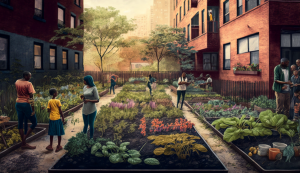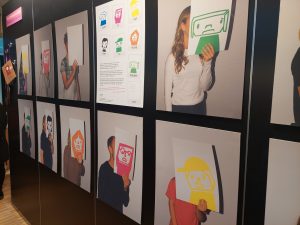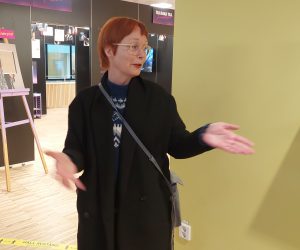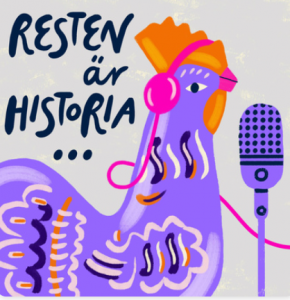After starting off the spring semester at the University, it was time for a Visual Literacy Workshop on Imag(in)ing the Future, run by Vicky Karaiskou, UNESCO Chair on Visual Anticipation and Futures Literacy, based at the Open University of Cyprus.
Vicky asked us to send her an image of the future before the workshop.
I did not know the purpose, was it to fire us all up before the workshop? Was I expected to talk about the image I had chosen? I decided to dive into the workshop with open eyes. I mean, what can go wrong?
We met on zoom on 13 March, almost all members of the Chair and some invited students and researchers. After some introductions, Vicky introduced us to the workshop.
Each of us presented one or two images of what the future meant to us. This was so interesting! So many different views, some about crossroads, some urban environments, some landscapes, and water, even cartoons and illustrations from children’s literature were there.
Vicky: You wake up in 2123. You have only one question you can ask to make sense of that strange world around you. Τhe question can only be answered with ‘yes’ or ‘no’. What would you ask? — Many of us asked basic questions like what I can eat, where is the toilet but questions of language, are we still human, which planet are we on, were also raised.
Vicky: Depict how you predict 2123 will look. Observe what is around you: how is the environment? How do cities & buildings look; what institutions exist; what about social relationships; behaviours; people’s looks; works; activities (what people do); values; ideologies; dominant trends? — This part of the workshop made us realize that we all have different expectations about the future, some negative, some positive.
When we had come this far in the workshop, I realized what we were doing. Vicky asked us to explore our underlying assumptions and emotions! The idea was to make us question and investigate these assumptions and emotions through the images and understand how the assumptions and emotions affect us.
At the end, we were asked to create a new question about the future starting with What if…? The questions were humble and included approaching other audiences, working globally, and expressing future visions through art. Before finishing the workshop, we were all asked to complete individually a sentence which started with the words: “In 2123, the future will mean…”.
The aim of the workshop was to open up new ideas. It certainly did!
After finishing, Vicky sent all of us a summary of our individual contributions. Her Chair partner, Sebastian Plate, used AI to summarize our contributions. Based on the answer to the last question and the input during the workshop, he made the AI capture this on my contribution:

Thank you, Vicky, for opening my eyes and for a creative workshop!
Helena Rydén, Assistant to the UNESCO Chair on Heritage Futures














[…] The new funding for this and a number of additional smaller projects, means that the Climate Heritage Network is…
[…] Chair on Heritage Futures « Culture, cultural heritage and COP26 […]
[…] mer på Unescoprofessurens blogg http://blogg.lnu.se/unesco/?p=1061 Besök Öland 2050! […]